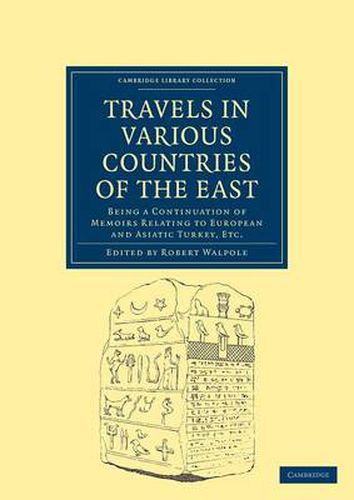Readings Newsletter
Become a Readings Member to make your shopping experience even easier.
Sign in or sign up for free!
You’re not far away from qualifying for FREE standard shipping within Australia
You’ve qualified for FREE standard shipping within Australia
The cart is loading…






Robert Walpole (1781-1856), great-nephew and namesake of Britain’s first prime minister, was a classical scholar and clergyman. After graduating from Trinity College, Cambridge, he visited Greece and the Middle East. In 1817 he published Memoirs Relating to European and Asiatic Turkey (also reissued in this series), extracts from the unpublished papers of various travellers and antiquaries, and it was so well received that he produced this continuation in 1820. It consists of extracts from the unpublished papers of, among others, W. M. Leake and John Sibthorp, with descriptions of antiquities, and notes by the editor. The topics covered vary considerably and reflect the wide interests of contemporary educated gentlemen: they include travel journals, observations on natural history, inscriptions from Egyptian monuments discovered by Belzoni, and C. R. Cockerell’s views on the Labyrinth of Minos. The book remains a rich source for scholars from a wide range of disciplines.
$9.00 standard shipping within Australia
FREE standard shipping within Australia for orders over $100.00
Express & International shipping calculated at checkout
Robert Walpole (1781-1856), great-nephew and namesake of Britain’s first prime minister, was a classical scholar and clergyman. After graduating from Trinity College, Cambridge, he visited Greece and the Middle East. In 1817 he published Memoirs Relating to European and Asiatic Turkey (also reissued in this series), extracts from the unpublished papers of various travellers and antiquaries, and it was so well received that he produced this continuation in 1820. It consists of extracts from the unpublished papers of, among others, W. M. Leake and John Sibthorp, with descriptions of antiquities, and notes by the editor. The topics covered vary considerably and reflect the wide interests of contemporary educated gentlemen: they include travel journals, observations on natural history, inscriptions from Egyptian monuments discovered by Belzoni, and C. R. Cockerell’s views on the Labyrinth of Minos. The book remains a rich source for scholars from a wide range of disciplines.